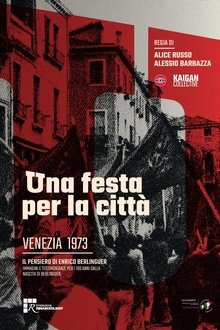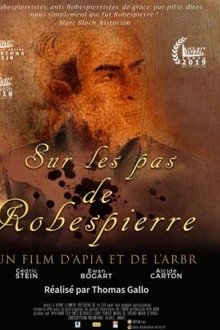The Real Story of Fake Democracy. Filmed over three years in five countries, FREEDOM FOR THE WOLF is an epic investigation into the new regime of illiberal democracy. From the young students of Hong Kong, to a rapper in post-Arab Spring Tunisia and the viral comedians of Bollywood, we discover how people from every corner of the globe are fighting the same struggle. They are fighting against elected leaders who trample on human rights, minorities, and their political opponents.
Related Movies
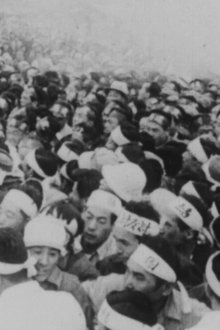
Security Treaty (1959)
An early experimental film by Toshio Matsumoto. Produced as part of the student riots in Japan at the start of the 1960s, Matsumoto uses collage, archival footage, and impassioned narration to create an expressive, visceral criticism of the US-Japan Security Treaty.
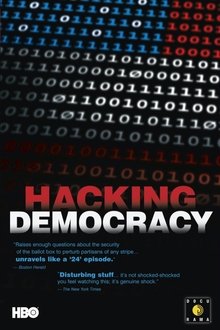
Hacking Democracy (2006)
Documentary film investigating allegations of election fraud during the 2004 U.S. presidential election. Electronic voting machines count approximately 90% of America's votes in county, state and federal elections. The technology is also increasingly being used across the world, including in Canada, the United Kingdom, Europe and Latin America. The film uncovers incendiary evidence from the trash cans of Texas to the ballot boxes of Ohio, exposing secrecy, votes in the trash, hackable software and election officials rigging the presidential recount.Ultimately proving our votes can be stolen without a trace "Hacking Democracy" culminates in the famous 'Hursti Hack'; a duel between the Diebold voting machines and a computer hacker from Finland - with America's democracy at stake.
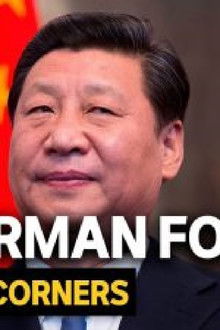
Chairman for Life (2021)
China’s President Xi Jinping is a force to be reckoned with. As leader of the Communist colossus, he commands the world’s attention, but who is China’s strongman and what is his agenda?

American Inquisition (1983)
An examination of the effect of McCarthyism on two ordinary Americans. Interviews with Paul McCarty and his family describe the loss of his job in a Paducah, Kentucky power plant in 1953 when his loyalty was questioned; he lost job after job for over twenty years. Interview with Luella Mundel, the object of false accusations based on her unconventional views and actions. Interviews with colleagues, friends, and a historian recreate the dramatic trial which devastated Mundel personally.
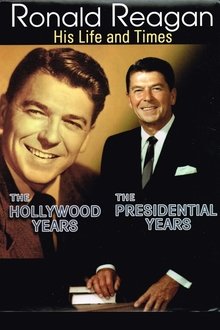
Ronald Reagan: The Hollywood Years, the Presidential Years (2001)
These 2 one-hour specials will take a look back at Ronald Reagan from his ups and downs as a Hollywood movie star to a legendary force in American politics. HOLLYWOOD YEARS: will take a look at the actor as he goes from local sports broadcaster to respected leading an using film clips, interviews and rare footage. This one a kind documentary traces the ups and downs of his on-screen career, his marriages to Hane Wyman and Nancy Davis and his role as a "friendly witness" during the McCarthy hearings. PRESIDENTIAL YEARS: documents Ronald Reagan's extraordinary transformation from a Hollywood movie star to a legendary force in American politics. From political spokesman to Governor of California, Reagan's rapid rise in leadership carried him all the way to the White House where he would inscribe an indelible legacy into the pages of world history.

Reagan (2011)
Americans know President Ronald Reagan s politics, his policies, and his oratorical prowess. But as we approach what would have been his 100th birthday in February 2011, the totality of the legacy of America s 40th president is still eclipsed by the myth. While some say he s a hero, and others call him an empty suit, one thing is for certain President Ronald Reagan made history. But what made him? Using rare archival footage and personal interviews with those who knew him best, REAGAN goes beyond the myth to reveal the epic story of an unforgettable man who, against all odds, rose to the pinnacle of power. A brand-new HISTORY special that uses rare archival footage and personal interviews to reveal the President Reagan that few of us knew.
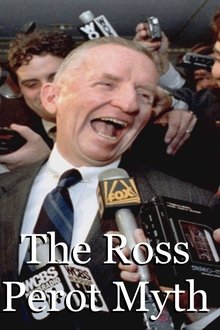
The Ross Perot Myth (2016)
An enduring myth in U.S. presidential election history is that George H.W. Bush only lost his re-election bid in 1992 because a peculiar independent candidate from Texas, Ross Perot, drew more voters away from Bush than from Democratic candidate Bill Clinton. Perot ran a quirky "outsider" campaign that in many ways presaged the Donald Trump phenomenon of 2016. It all amounted to one of the most successful third-party bids in U.S. history; Perot won 19 percent of the popular vote.
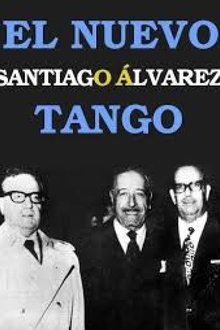
The New Tango (1973)
The New Tango (El Nuevo Tango) was not shown in Argentina for a long time as it deals with the ascent of Argentinean president Hector Campora in May 1973, and features Cuban and Chilean presidents, Osvaldo Dorticos and Salvador Allende. A million people gathered on the Plaza de Mayo to acclaim the new President. One of Cámpora's first presidential actions was a granting of amnesty to political prisoners who where jailed during the dictatorship. On 28 May Argentina restored diplomatic relations with Cuba, which then received Argentine aid - such as food and industrial products - to break the United States embargo against Cuba.
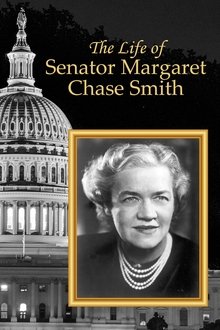
The Life of Senator Margaret Chase Smith (2011)
The journey of Senator Margaret Chase Smith from Skowhegan to Washington D.C. included obstacles such as 1950s gender bias and McCarthyism. Along the way Senator Smith became the first woman in history to serve in both the U.S. House and Senate. Hosted by Jack Perkins, the film includes insightful interviews with Senators Olympia Snow, Susan Collins, and Bill Cohen.

And the Walls Came Tumbling Down (1984)
This documentary / fund raiser film was produced in 1984 by the Hong Kong Salvation Army to raise sponsorship for their educational activities in the infamous Kowloon Walled City. The project was filmed in 16mm film.

Attack! The Battle for New Britain (1944)
Actual footage by the United States Signal Corps of the landing and attack on Arawe Beach, Cape Glouster, New Britain island in 1943 in the South Pacific theatre of World War Two, and the handicaps of the wild jungle in addition to the Japanese snipers and pill-box emplacements.

Megg - The Margin Who Migrate to the Center (2018)
Megg Rayara overcame obstacles that should not exist to get where she is. Get a Doctorate Degree is a very important victory not only for her, but also for the transvestite community. For the first time in Brazil, a black transvestite wins a Doctorate Degree. It is the margin that migrates to the center, taking all its history with her.

The Golden Thread (2022)
In the heyday of the jute industry, millions of people in Bengal made their living doing this laborious work, which has hardly changed since the industrial revolution. The 100-year-old machinery has been endlessly repaired. State aid kept this sustainable alternative to plastic going, but its future looks bleak.
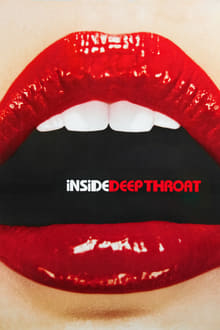
Inside Deep Throat (2005)
In 1972, a seemingly typical shoestring budget pornographic film was made in a Florida hotel: "Deep Throat," starring Linda Lovelace. This film would surpass the wildest expectation of everyone involved to become one of the most successful independent films of all time. It caught the public imagination which met the spirit of the times, even as the self-appointed guardians of public morality struggled to suppress it, and created, for a brief moment, a possible future where sexuality in film had a bold artistic potential. This film covers the story of the making of this controversial film, its stunning success, its hysterical opposition along with its dark side of mob influence and allegations of the on set mistreatment of the film's star.
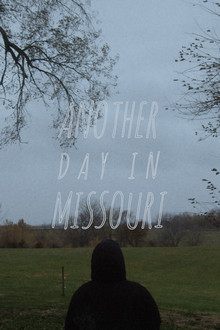
Another Day in Missouri (2021)
An inside look at Jessica Piper, a Democratic Candidate running for a House seat in District 1 of Missouri. This is a snapshot of her mind and what it feels like to run a campaign in an overlooked place.
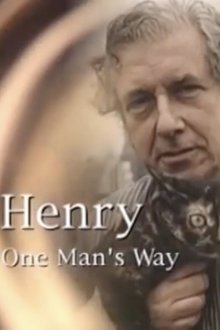
Henry: One Man's Way (1996)
One Man's Way is a 1996 documentary in which Peter Singer documents the efforts and philosophies of animal rights activist Henry Spira, who is often remembered as the most effective animal activist of the 20th century. Henry Spira is most notably known for his tireless efforts to expose the the cruel animal experimentation that goes on behind doors, especially in the cosmetic industry.

The Corporation (2003)
Since the late 18th century American legal decision that the business corporation organizational model is legally a person, it has become a dominant economic, political and social force around the globe. This film takes an in-depth psychological examination of the organization model through various case studies. What the study illustrates is that in the its behaviour, this type of "person" typically acts like a dangerously destructive psychopath without conscience. Furthermore, we see the profound threat this psychopath has for our world and our future, but also how the people with courage, intelligence and determination can do to stop it.

